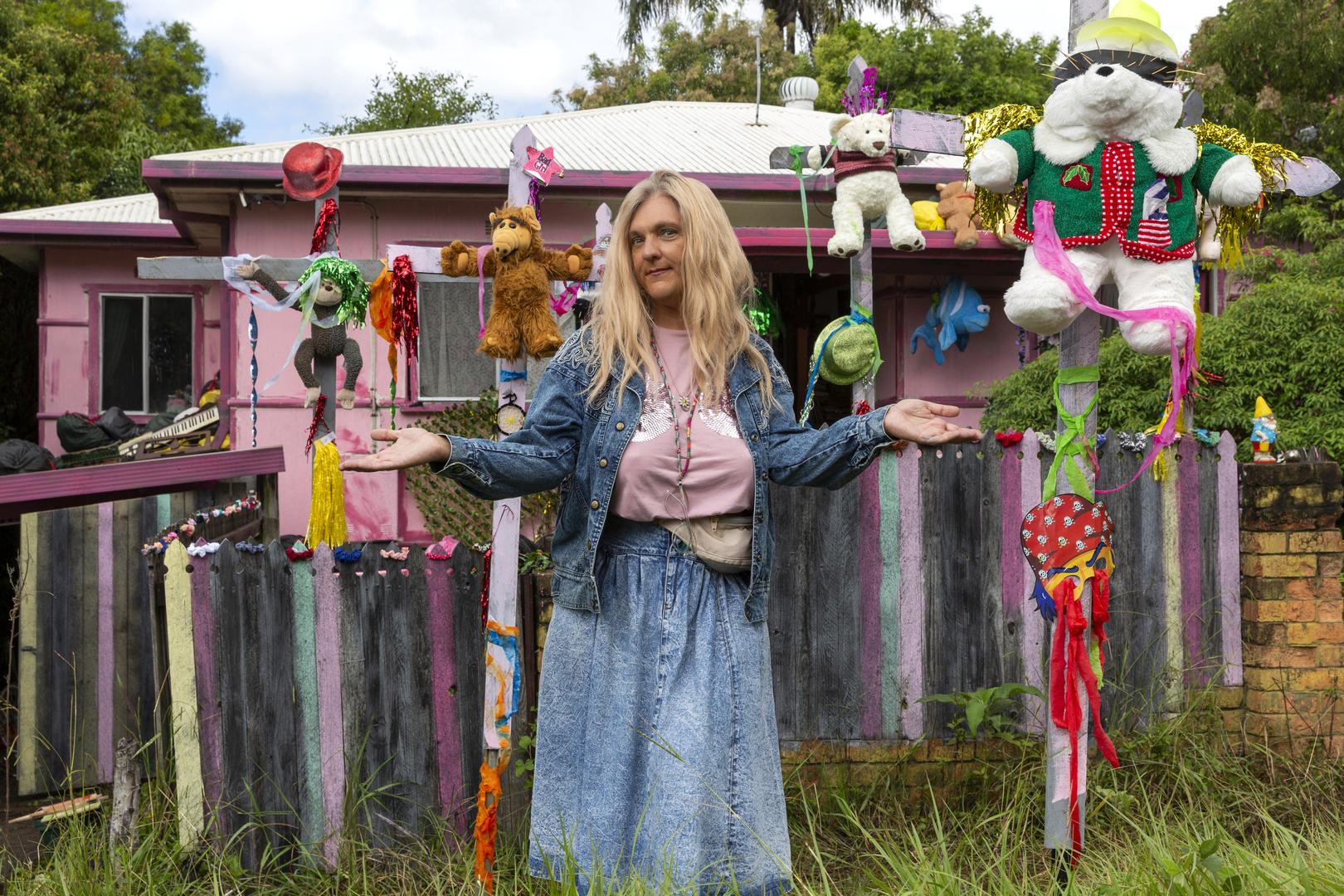The Lunatics are the people who commissioned this
The reviews of Chris Lilley’s Lunatics are in, and it’s not looking good for this country’s most hyped comedian.
…one of the underlying problems in Lilley’s humour still remains: he continues to punch down, making fun of people who have not been afforded the same privileges as he. There’s also the fact that his now very familiar shtick hasn’t matured since his breakthrough in 2005’s We Could Be Heroes. In fact it’s more juvenile than ever.
Some questionably reductive depictions of mental illness aside, Lunatics is more mawkish than outrageous.
Whether anyone but the die-hards will watch to the series’ emotive end is another matter.
But the biggest offence in his new Netflix series Lunatics is that it isn’t very funny at all -at least not in the two episodes I watched. And I say that as a big fan of We Can Be Heroes and Summer Heights High.
Despite a long break since the disappointing Jonah from Tonga now it just feels like we’ve seen it all before. That’s despite a parade of new characters for our entertainment.
Lunatics is designed to aggravate and make you feel uncomfortable, but the bait isn’t worth taking because we’ve been here so many times before; to be outraged is too easy.
The repetitive nature of Lilley’s comedy and his inability to evolve makes him stick out even more, especially at a time when there is a great reckoning in comedy. Comedy has changed and audiences are less receptive now to what may have been once the norm. To bring back Lilley’s defence: we can put the jokes of the past in their context — racist, sexist, homophobic — but that doesn’t mean they’re going to fly in 2019.
Where before Lilley’s characterisations revealed some redeeming features of each of his creations, Lunatics attempts in its death throes to justify each of the central six’s abhorrence by suggesting that, “If you wanna be weird, be weird. You do you.” It’s not enough, and feels entirely ham-fisted in each of the six’s individual versions of a happy ending.
Perhaps it’s Lilley reassuring himself that the weirdness he imagines can be considered OK because he’s being authentic to that which comes from his creative night terrors.
I laughed really hard at one moment (and only one). A supporting character did something that was very much a step too far for them and the humour was in that character having the wherewithal to back themselves. It was very well delivered but not worth watching the 9 episodes necessary to get the context and appreciate it.
Surely after that critical slating – and the above reviews are just scratching the surface – this must be Lilley’s final big series. No one will commission a show from again, right? Unless he makes some seriously big changes to what he produces?
We get that awful characters equals classic comedy – Basil Fawlty, Jerry Seinfeld, Larry David, Fleabag, David Brent/Michael Scott in The Office – but usually, there’s a bit more going on than “here’s someone dreadful or odd at the centre of the show”. Other characters questioning their behaviour or fighting back, for one thing.
Lilley’s habit of rarely allowing his supporting players to speak is a big problem; almost the entire show is an idiot loud-mouth dominating the whole thing. And when you factor in that there’s almost no plot – and its run time is more than five hours – well, most people will tune out fairly early in this series, we suspect, and few will see the promised happy ending.
And we assume that happy ending concerns big-legged Becky, the only character who isn’t an awful human being and who the audience might, therefore, give a vague shit about. It’s hard to imagine fashion store owner Keith, real estate agent Quentin or future Lord of the Manor Gavin ever finding any peace within themselves by, say, changing for the better and becoming decent members of the society. Even pet psychic Jana and ex-porn star Joyce would have to undergo a lot of transformation to generate any pathos. And if there’s one thing we’ve learnt from We Can Be Heroes, Summer Heights High, Angry Boys, Ja’mie: Private School Girl and Jonah from Tonga, it’s that the central character in a Chris Lilley series never changes. Ever.
In fact, Chris Lilley series never change ever. They’ve always been mirthless, plotless, pointless, meandering, indulgent affairs that stretch the definition of “comedy program” to breaking point.
Why the hell do people keep allowing him to make them? And how can we get them to stop? Our only hope for Lunatics is that metrics-obsessed Netflix notices that large numbers of people fail to complete the series or stop watching part-way through early episodes. That’ll kill a second series stone dead.
So, if you think there are people out there who could make a better series with Netflix’s money than Chris Lilley – and we can think of at least a dozen – then do the right thing: stop watching.

